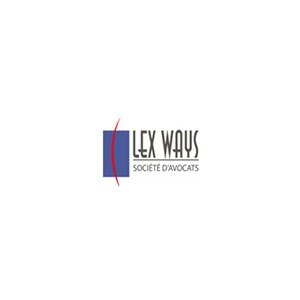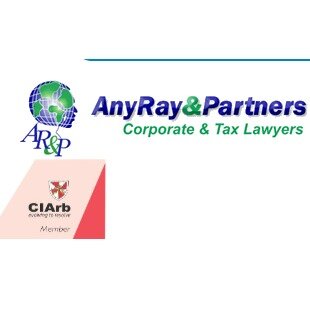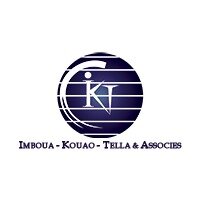Best Energy Regulatory Law Lawyers in Ivory Coast
Share your needs with us, get contacted by law firms.
Free. Takes 2 min.
Or refine your search by selecting a city:
List of the best lawyers in Ivory Coast
About Energy Regulatory Law in Ivory Coast
Energy Regulatory Law in Ivory Coast governs the production, distribution, and consumption of energy resources such as electricity, oil, gas, and renewable energy sources. The sector is regulated by a set of laws, regulations, and governmental authorities tasked with ensuring fair competition, sustainable practices, safe infrastructure, and reliable energy supplies. Since the liberalization of the electricity sector in 1998 and the continuous reforms, Ivory Coast has become a major regional energy supplier, particularly in electricity generation and export. Regulatory frameworks aim to attract investment, protect consumers, and align with international standards, while fostering economic growth and environmental sustainability.
Why You May Need a Lawyer
Legal assistance in the field of Energy Regulatory Law can be crucial for individuals, companies, and organizations involved in any aspect of the energy sector. Here are common situations in which you may require a lawyer:
- Negotiating, drafting, or reviewing contracts for energy supply, distribution, or sale
- Obtaining licenses and permits for energy production or distribution
- Complying with local regulations and environmental standards
- Participating in public tenders for energy projects
- Handling disputes with regulatory authorities or business partners
- Advice on renewable energy projects and incentives
- Resolving land use or access issues related to energy infrastructure
- Understanding and managing tariffs, taxation, or export regulations
- Dealing with cross-border transactions or international energy agreements
- Guiding on investment protection, financing, and risk management
Local Laws Overview
Ivory Coast has a well-developed legal framework governing energy activities, regularly updated to reflect market needs and international best practices. Here are key aspects of the local regulatory landscape:
- The energy sector is overseen by the Ministry of Mines, Petroleum and Energy, and governed by multiple laws and regulations specific to each energy segment (electricity, oil, gas, renewables).
- The Autorité Nationale de Régulation du Secteur de l’Electricité de Côte d’Ivoire (ANARE-CI) is the main electricity sector regulator, responsible for monitoring, mediating disputes, and ensuring market stability.
- Law No. 2014-132 (16 March 2014) is a critical piece for the electricity sector, covering licensing, tariffs, consumer protection, and competitive market provisions.
- Environmental and social legislation also shapes energy projects, so compliance with environmental impact assessments and community consultation is mandatory.
- The oil and gas sectors are regulated by their own codes, with emphasis on contracts, taxation, and local content requirements.
- Investment laws provide certain guarantees, tax incentives, and the right to international arbitration in case of disputes for energy investors.
- Renewable energy is promoted through specific incentives and integration into the national grid, with ongoing reforms to facilitate private sector participation.
Frequently Asked Questions
What regulatory authority oversees the energy sector in Ivory Coast?
The Ministry of Mines, Petroleum and Energy supervises the sector, while entities such as ANARE-CI regulate the electricity market. Other segments like oil and gas have dedicated oversight bodies or directorates.
Do I need a license to produce or distribute electricity?
Yes, any company or individual wishing to produce, transport, or distribute electricity commercially must obtain a license from the relevant authority. The process includes technical, financial, and environmental requirements.
Are there specific laws for renewable energy projects?
Renewable energy is guided by general electricity sector laws and supplemented by specific incentives and regulations to promote investment and integration with the grid.
How are electricity tariffs regulated?
Tariffs are proposed by operators but must be approved by ANARE-CI, taking into account production costs, investments, and consumer protection principles.
Can foreign investors participate in energy projects?
Yes, the legal framework is open to foreign investment, with provisions protecting rights and allowing repatriation of profits, subject to national laws and investment codes.
What are the key environmental compliance requirements?
Energy projects must undergo environmental impact assessments, obtain necessary approvals, and comply with national and, where relevant, international environmental standards.
What happens in case of disputes in the energy sector?
Disputes can be resolved through regulatory mediation by ANARE-CI or, where specified, through national courts or international arbitration, based on the contract and applicable laws.
Is consumer protection addressed in energy regulation?
Yes, regulations include consumer protection provisions, ensuring service quality, safety, and fair treatment. Complaints can be lodged with regulatory authorities.
Are there obligations to use local content or suppliers?
Certain energy projects, especially in oil and gas, include requirements for using Ivorian goods, services, or personnel to promote local development.
What are the common pitfalls for businesses entering the energy sector?
Typical issues include inadequate understanding of licensing requirements, non-compliance with environmental or social obligations, failure to meet local content requirements, and unclear contract terms. Early legal counsel can help navigate these areas.
Additional Resources
If you need more information or assistance, consider reaching out to these relevant bodies and resources:
- Ministry of Mines, Petroleum and Energy: the central authority for policy and regulation
- Autorité Nationale de Régulation du Secteur de l’Electricité de Côte d’Ivoire (ANARE-CI): primary contact for electricity regulation and consumer complaints
- Côte d’Ivoire Chamber of Commerce and Industry: for business support and investment queries
- Centre de Promotion des Investissements en Côte d’Ivoire (CEPICI): information and facilitation for investors
- Professional associations in the energy sector: networking and regulatory guidance
- Local environmental authorities: guidance on environmental compliance
Next Steps
If you find yourself needing legal assistance in Energy Regulatory Law in Ivory Coast, consider the following approach:
- Define your specific needs and gather all relevant documents related to your project or issue
- Consult with a lawyer or law firm specializing in energy or regulatory affairs in Ivory Coast
- Request a preliminary assessment to understand your legal position and compliance requirements
- Ensure the legal professional is familiar with current laws, local regulatory practices, and sector-specific risks
- Maintain communication with regulatory bodies as needed and seek clarifications early in the process
- Engage in ongoing legal support for contract management, compliance monitoring, and dispute resolution as your project progresses
Taking proactive legal steps will help avoid regulatory pitfalls, ensure project success, and protect your interests in the dynamic Ivory Coast energy sector.
Lawzana helps you find the best lawyers and law firms in Ivory Coast through a curated and pre-screened list of qualified legal professionals. Our platform offers rankings and detailed profiles of attorneys and law firms, allowing you to compare based on practice areas, including Energy Regulatory Law, experience, and client feedback.
Each profile includes a description of the firm's areas of practice, client reviews, team members and partners, year of establishment, spoken languages, office locations, contact information, social media presence, and any published articles or resources. Most firms on our platform speak English and are experienced in both local and international legal matters.
Get a quote from top-rated law firms in Ivory Coast — quickly, securely, and without unnecessary hassle.
Disclaimer:
The information provided on this page is for general informational purposes only and does not constitute legal advice. While we strive to ensure the accuracy and relevance of the content, legal information may change over time, and interpretations of the law can vary. You should always consult with a qualified legal professional for advice specific to your situation.
We disclaim all liability for actions taken or not taken based on the content of this page. If you believe any information is incorrect or outdated, please contact us, and we will review and update it where appropriate.
Browse energy regulatory law law firms by city in Ivory Coast
Refine your search by selecting a city.












